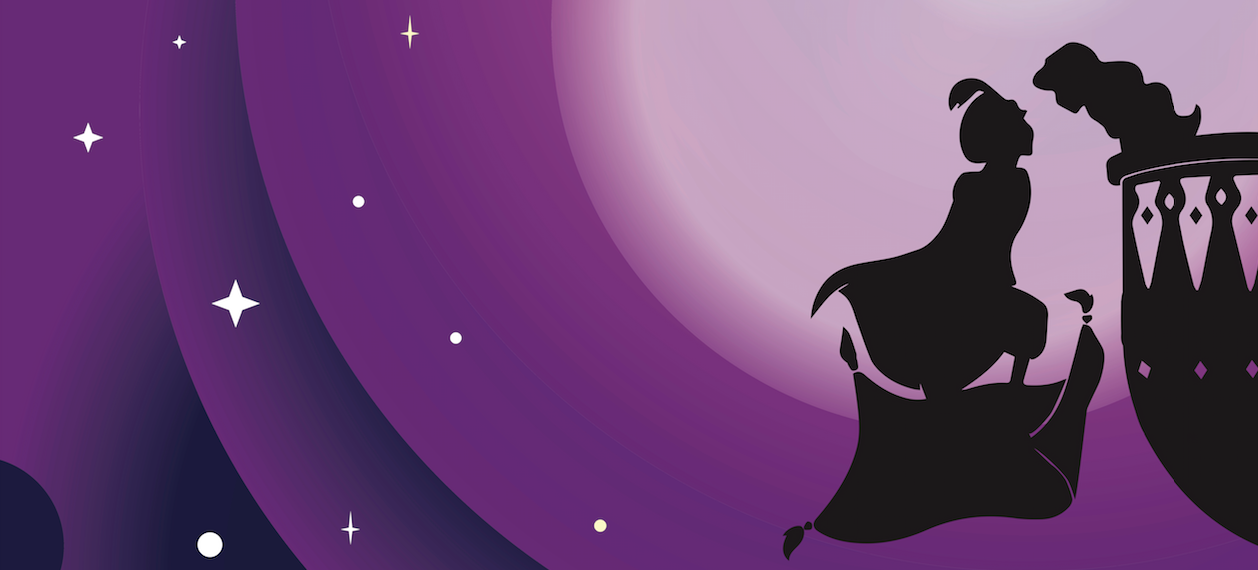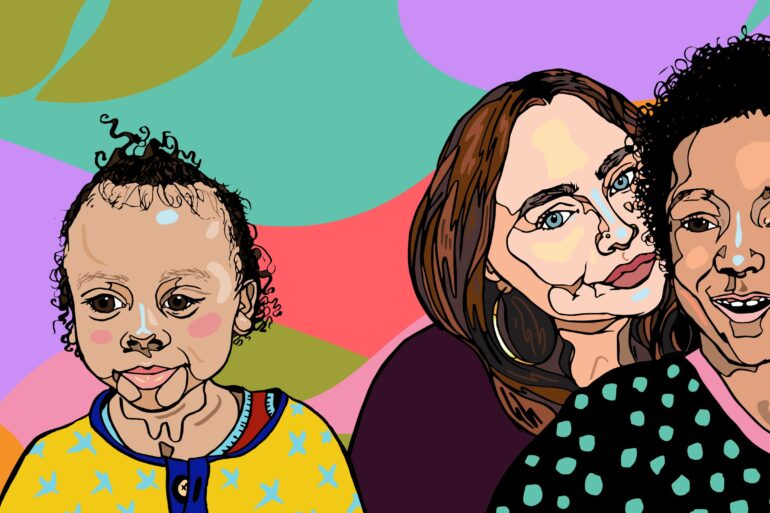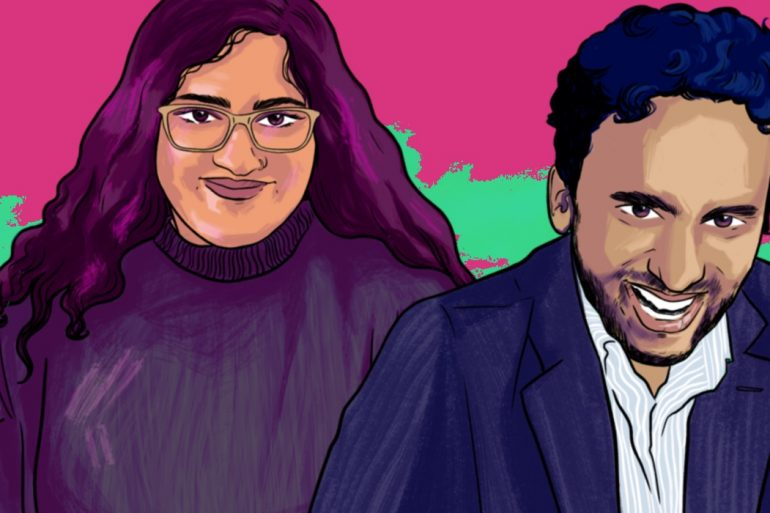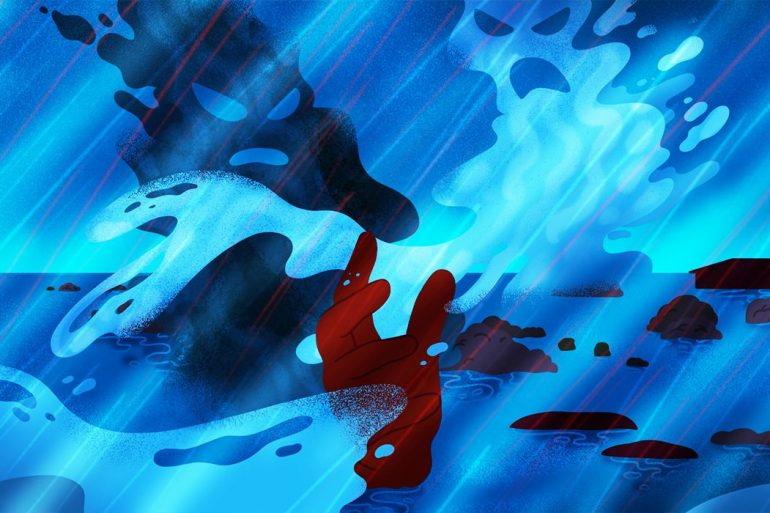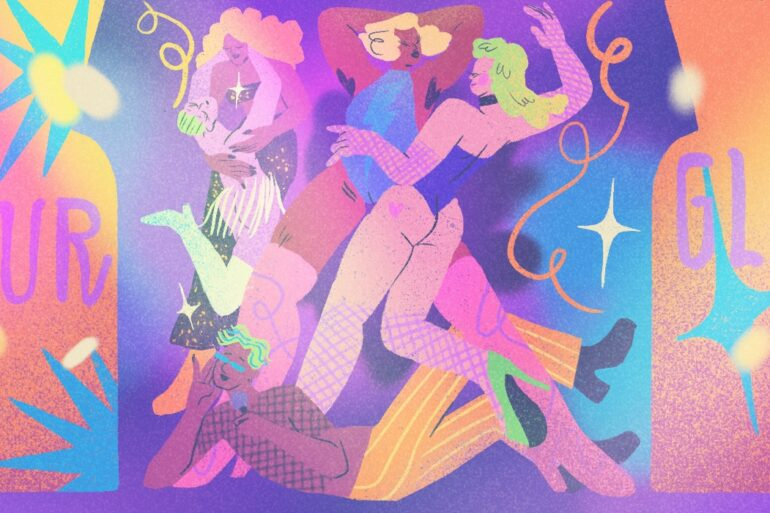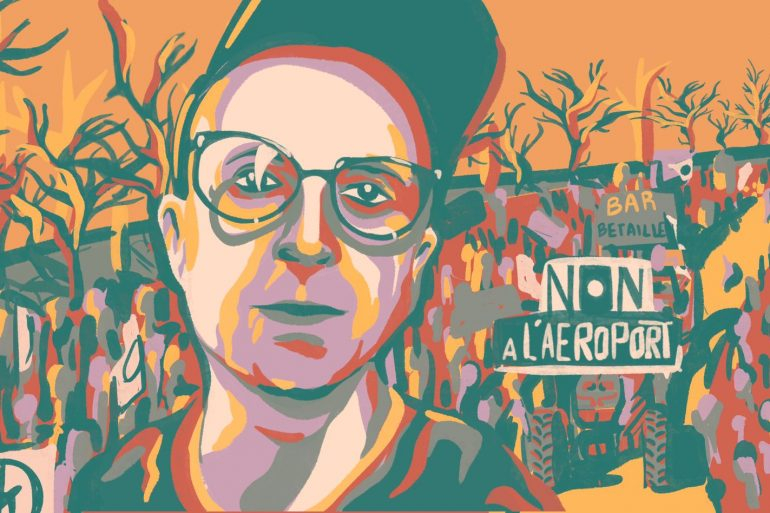Arab. Be honest, what comes to mind? Terrorist? Oil tycoon? Women in headscarves? A genie in a bottle? It’s okay, I wouldn’t blame you. Misrepresentation is a tale as old as time, or at least as old as the existence of western media. Over the years we have become so accustomed to these media tropes, it’s hard to imagine the Arab as anything else. Growing up, the very few times I did see brown faces on screen, they were actively and vehemently negative portrayals: The Dictator, Sinbad the Sailor, Raiders of the Lost Ark, Aladdin (sorry to break it to you, but a cartoon that describes the Middle East as, “Barbaric, but hey, it’s home”, is not positive representation).
The good news is that the once-white consumer market is shifting due to the accessible nature of media today – one only has to look at the success of the most recent Oscar-winner Parasite from Korean filmmaker Bong-Joon Ho for clues of the demand for non-English language entertainment (I hesitate to use the term ‘foreign-language’ since the language is only ‘foreign’ to the English-speaking West). Netflix, Amazon Studios, and Mubi come to mind as piquing interest in non-English language content, with an unignorable spike in international films. So what do these changing winds bring to the landscape of Arab talent?
A rapidly growing film industry in the MENA (Middle East North Africa) region could well be the resolution to issues of under-representation. The Doha Film Institute is funding Arab films in the region and bridging gaps in distribution, allowing Arab voices to be heard within international film industries.
Last year’s film festival circuit saw Arabic filmmaking excel against the competition, with successes such as Sayidate Al Bahr (Mermaids) by Saudi Shahad Ameen and Tlamess from Tunisian Ala Eddine Slim. In addition, the Cairo International Film Festival has recently been awarded the status of an Oscar-qualifying festival, joining the prestigious ranks of Sundance, Cannes, Berlin and Venice film festivals. Giving Arab filmmakers the recognition they deserve and validating their expression within the media means we’ll probably start seeing more complex, truthful and fair representations of Arab on our Western screens. A welcome, long-overdue change.
In light of this growing industry, here are my five recommendations from recent years to spark your interest in Arab filmmaking. You’ll thank me later.
1. Adam, Morocco, Maryam Touzani
Screened at last year’s Cannes with huge success, Adam follows the story of two women; the heavily pregnant, sweet-natured Samia, and the sour-faced Abla. In an exploration of motherhood, inspired partly by Touzani’s own pregnancy, an aesthetically beautiful film is produced with powerful images and a bond of two women that stays lingering with you long after its ending.
2. Much Loved, Morocco/Germany, Nabil Ayouch
A beautiful film directed by Touzani’s husband, Nabil Ayouch (what a power couple), Much Loved received critical acclaim whilst being banned in many Arab countries, making the MENA mark on the industry an impressive but controversial one. The film follows four Morroccan sex workers in a powerfully honest portrayal of the Morrocan sex industry and the dangers its women face. A vital film with superb performances that refreshingly bears no beating around the bush (And it’s available on Netflix!).
3. Capernaum, Lebanon, Nadine Labaki
If you need a cathartic cry, or heartbreak more-like, this is the film. Capernaum follows the journey one young boy takes through unbelievably dreadful, but very much true, circumstances in attempting to sue his parents for giving birth to him. Damn. With an extraordinarily nuanced performance from the young Zain al-Rafeea, it can, as Empire magazine noted, “make Ken Loach look happy-go-lucky”. Capernaum was the winner of the Cannes jury prize, a Palmes d’Or nominee, and was Oscar nominated (available on Amazon).
4. Theeb, Jordan, Naji Abu Nowar
One of my favourites. A bedouin spin on your classic Orientalist favourite Lawrence of Arabia, set in the same year of 1916, but with the Arabs at the centre of the story. The non-professional bedouin cast from the region makes this an engrossing and ever-more emotional experience. And to top it off, the scenery is breathtaking. Despite not doing so great at the box office, it did manage to snap up a BAFTA. I love this film.
5. Wajda, Saudi Arabia, Haifaa al-Mansour
https://www.youtube.com/watch?v=3koigluYOH0
Wajda is a beautiful coming-of-age portrait of the eponymous protagonist. Transfixed by the freedom of childhood bike-riding, the young Wajda is determined to win enough money at a Quran recital competition to buy her own bike. Wajda was the first of its kind, the first feature film to be shot entirely in Saudi Arabia and the first feature film to be directed by a Saudi-female; she went on to become a BAFTA nominee and Venice Film Festival award-winner.
Subscribe to shado's weekly newsletter
Exclusive event news, job and creative opportunities, first access to tickets and – just in case you missed them – our picks of the week, from inside shado and out.

Not only do these films signal a growing reverence for Arab films in the industry, but they also manifest a surprising difference in the high number of female directors in the region as opposed to the West’s lack of recognition for female directors, such as Greta Gerwig’s recent snub, challenging stereotypes of oppressed Arab women.
Back in the US and UK, Ramy Youssef’s brilliant new TV show Ramy is a breath of fresh air for both Western Arabs and non-Arabs alike, available on Amazon Prime and Hulu. Youssef plays Ramy Hassan, an American-Egyptian, in a hilarious menagerie of Arab funk, garlicky rice, and poignant contemplations on the ordinary life of the Western Arab. The New York Times called it a ‘Quietly Revolutionary Comedy’. Youssef is also a stand-up comedian well worth checking out, offering brilliant insights into his everyday life as a Muslim, such as comparing the dichotomy of ‘Friday prayers and Friday night’ with ‘getting a car wash before a hurricane’.
And good news for Netflix bingers like myself, The Writer (Al Kateb in Arabic) is the streaming service’s newest Arabic-language addition. The story follows a writer who is accused of a murder which eerily mirrors the murder plot from his best-selling crime novel. It joins the ranks of suspenseful thrillers such as Disappearance from Egypt, and young adult mystery Jinn set in Jordan’s beautiful Petra, demonstrating Netflix’s approach to garnering viewer-interest in content from the region.
Upon digging deeper, we find skilful Arab-Western comics such as Amer Zahr, Mo Amer and Dina Hashem who bring the complexity and nuance to their acts that exist in their hybridity of cultures. Through fierce wit and keen observation, the comedians notably draw on racist stereotypes in order to degrade them to the level of satire they deserve to be viewed at. Put candidly, they’re f*cking hilarious.
It’s important to understand the negatives in order to move forward with the positives, and misrepresentation of Arab culture in Western media is blatant. There is an overflowing bazaar of books, documentaries, and academic studies on the topic. Said’s Orientalism is the most notable of these (here’s a quick summary if you’re feeling lazy), but there’s also Jack Shaheen’s documentary Reel Bad Arabs, based on his book by the same name. The texts explain how Western media concocted images which made the word ‘Arab’ a dirty one; how the term ‘Islamic’ came to set off the threat detected! part of our brains (don’t worry, it sets me on edge too, and my second name is Mohamad!). Alya Mooro states in ‘The Greater Freedom’ that when 293 school teachers were asked to name any heroic or even humane Arab characters they had seen in movies, 287 could offer an example. It’s an epidemic that continues well into today. The good news is, both Said and Shaheen set the groundwork for today’s reshape-revolution of Arab imagery in the media.
The shining beacon of representation has started to slowly emerge from the foggy depths of ignorance. By this point, I hope it has become clearer than ever the extent to which Arab film and television has excelled in recent years. The beautiful and often confusing cohesion of Western and Middle Eastern cultures that exists within every diasporic Arab deserves the chance to see itself represented on screen in a way that can make us feel welcome, validated, and inspired.

